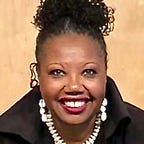Affective Language Explored!
Today, reading France Begins to Clear “Jungle” Migrant Camps Outside Calais article created personal discomfort. The, too, familiar depiction of people of color lived experiences as inconvenient and subjective to descriptions that devalue humanness is alarming. The mere fact that the migrant camp was identified as “the jungle” is dismissive of individual and collective vulnerability and a need for empathy. To perpetuate the coded institutionalization of “the jungle” a history of refugee settlement was provided to outline this human phenomenon.
I must admit that my resistance to embracing the descriptions is because racism is often coded in our psyches and institutions as justification to discriminate and oppress. Within the racist coded reports is a story of human struggle. The vast distances crossed into the unknown embarked by people from Afghanistan, Eritrea, and Sudan as a means toward survival within itself life changing. Reporter, Adam Nossiter quoted 24-year old Abdullah Umar saying “the jungle is no good” as though that information would be surprising to report deplorable conditions for housing people.
Yes, I continue to be shocked by the way, human struggle is reported differently depending on the skin color of the people. Words are used to characterize differences in a way to ensure lack of value by discussing the ending of the jungle only to enter another socialized network of discrimination and oppression.
Shared By: Simona L. Brickers, Affective Leadership Language Practitioner
